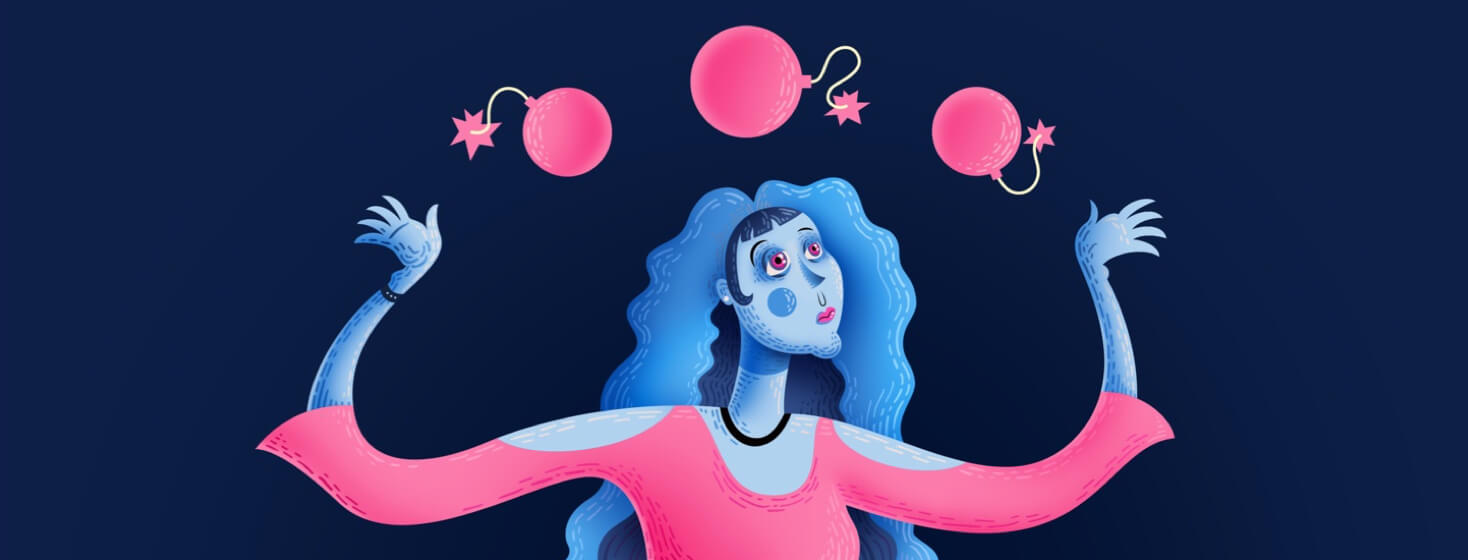Behind the Scenes of Narcolepsy: The Hidden Dangers
“Dangerous” is a word most would probably not associate with narcolepsy.
It’s just a sleep disorder, right? What could possibly be dangerous about a sleep disorder?
Although I would prefer to show you, I am inadequately limited to recounting my experiences through the written word in the best possible manner to enable a visual to form in your mind.
Feeling helpless behind the wheel
An article from the Harvard Medical School revealed that “Several studies of people with narcolepsy have found that more than half have fallen asleep while driving, and over one-third have had an accident due to sleepiness.”1
This was my first introduction to the dangers of narcolepsy and one of the principal reasons that drove me to look for a diagnosis. Falling asleep at the wheel on a bright, sunny day at 12 o'clock in the afternoon is simply not what most people would consider “normal” behaviour.
To feel absolutely helpless as your fingertips slide down the wheel, the one object that permits control over your safeguarding is a scary experience indeed.
Accidents and narcolepsy
Suddenly that "overrated" saying, “life flashing before your eyes,” no longer seems so overrated.
When you feel powerless to your body’s will...that is the moment you realise that the life you lay claim to, may in fact not be entirely yours to claim.
The article continues by explaining that “Sleepiness and cataplexy can lead to accidents at home or at work. About 30 to 50 percent of people with narcolepsy have had accidents or near-accidents that involved falling asleep while cooking, smoking, running dangerous machinery, or crossing the street.”1
Cooking risks
Cooking accidents, for a while, became somewhat of a frequent occurrence in my life. I have now learned to always (no matter what) set an alarm whenever I decide to cook. I am frankly ashamed to admit the number of times I woke up to a smoke-filled room, moments away from a quite possible death by smoke inhalation.
Hidden dangers leave physical and emotional scars
These are examples of the most alarming experiences I’ve endured as a result of my narcolepsy symptoms. But what about the not-so-obvious, everyday hazards that cause demoralising bruises and both physical and emotional scars that I struggle to justify to curious observers?
How to explain waking up in your bedroom, upside down, lodged in the space between your bed and the wall, with your head firmly rammed into the solid plastic socket back box, crushing it irreparably and leaving you with a well-concealed wound coupled with a throbbing headache? Not to mention the exasperating feelings of disorientation, shock, and inevitable self-chastisement.
Inability to express intense emotions
Then there are the moments that can be, in my opinion, some of the most incredibly frustrating of all. These are the occasions where you find yourself in the middle of an argument, and all you want to do is scream, defend yourself or, on occasion, offend someone else...but you physically can’t.
It is a feeling of such violation inflicted by your own body that feels like an ultimate betrayal. My body fails me. It becomes debilitated and, most times, sends me crashing to the floor without warning.
My latest battle scar is fixated on my elbow, leaving such an insignificant blemish on my skin yet a lasting mark on my soul.
The unseen scars of narcolepsy
You see, physical deformities are not the critical point. These are the marks that soon heal and eventually become a part of the story of our lives that our body regards with indifference. What I regard as the true danger are the unseen scars...the ones hidden in the depths of our psyche.
These are the ones that rarely heal completely.

Join the conversation